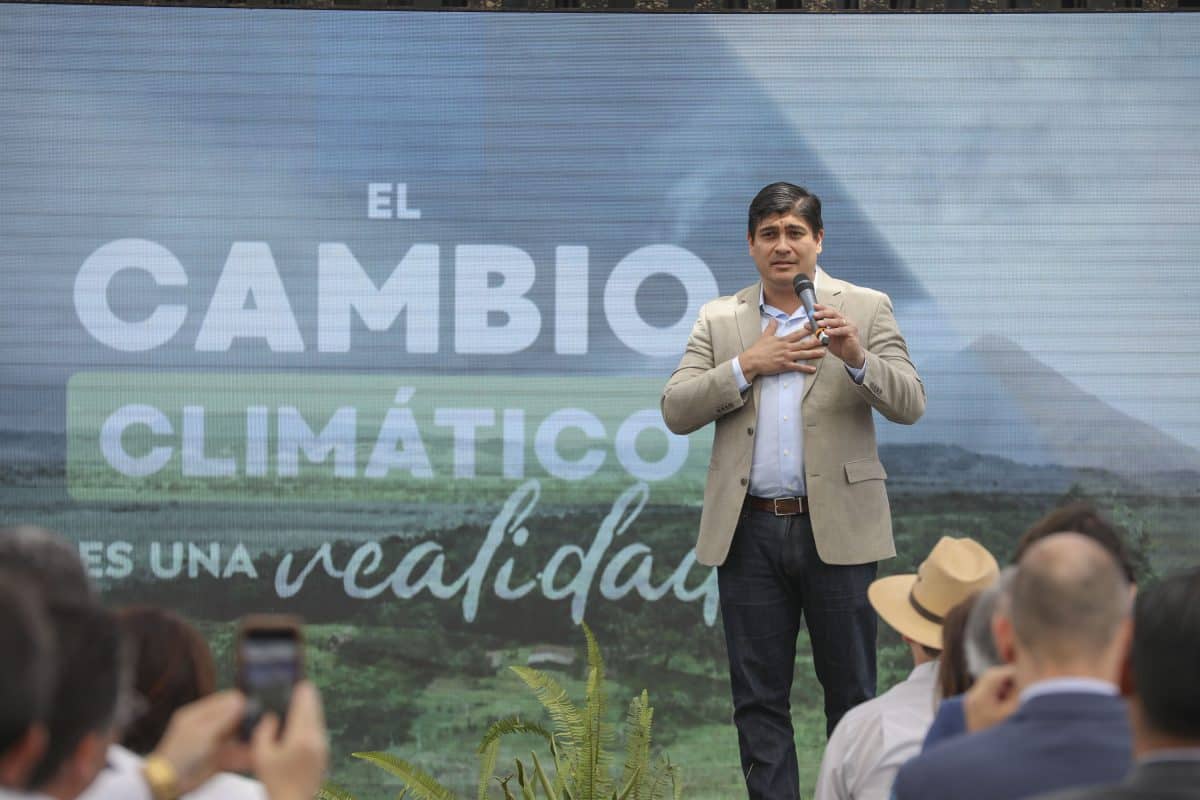President Carlos Alvarado says Costa Rica’s decarbonization plan could benefit the country’s economy to the tune of $19.5 billion.
During a speech at the PreCOP 25 meetings, which Costa Rica is hosting this week at the National Convention Center, President Alvarado argued that ambitious climate policies are “not only ethically correct for present and future generations, but also profitable.”
President Alvarado cited a joint study between the University of Costa Rica (UCR), the Inter-American Development Bank (IDB), the United States’ RAND Corporation and others, which concluded that Costa Rica would reap economic benefits by reaching its goals in transportation and infrastructure.
A $6 billion investment in transportation could more than pay for itself in terms of reduced operating costs and increased productivity, President Alvarado said, citing the study.
“Our country assumed the organization of this PreCOP 25 with the conviction that in the face of the climate crisis — the biggest challenge that we and future generations will face — conventional responses are not acceptable,” he said. “What some today call impossible, we will make it possible. It is time for exceptional actions. And that’s what we’re here for.
“It is time to move from words to action, and with a sense of urgency. That is the message that we must send to the international community as a result of this meeting.”
While Costa Rica has received international acclaim in recent weeks for its climate policies, others argue the country is not meeting its green ideals.
Alvaro Umaña, the country’s first Minister of Environment, told The Tico Times that he believes Costa Rica has to make major improvements in pesticide use, the abundance of plastics, and in wastewater and solid-waste treatment.
“We have one of the highest rates of pesticide use in the world still,” he said, adding that Costa Rica’s palm and pineapple plantations “are very environmentally destructive.”
The decarbonization plan also carries a significant up-front cost. As we’ve noted before, despite passing fiscal reform in late 2018, the Costa Rica’s debt remains high — and so do financing costs.
The government expects outside financing to support its decarbonization plan, but the country will still have to cover a large percentage of the cost.






